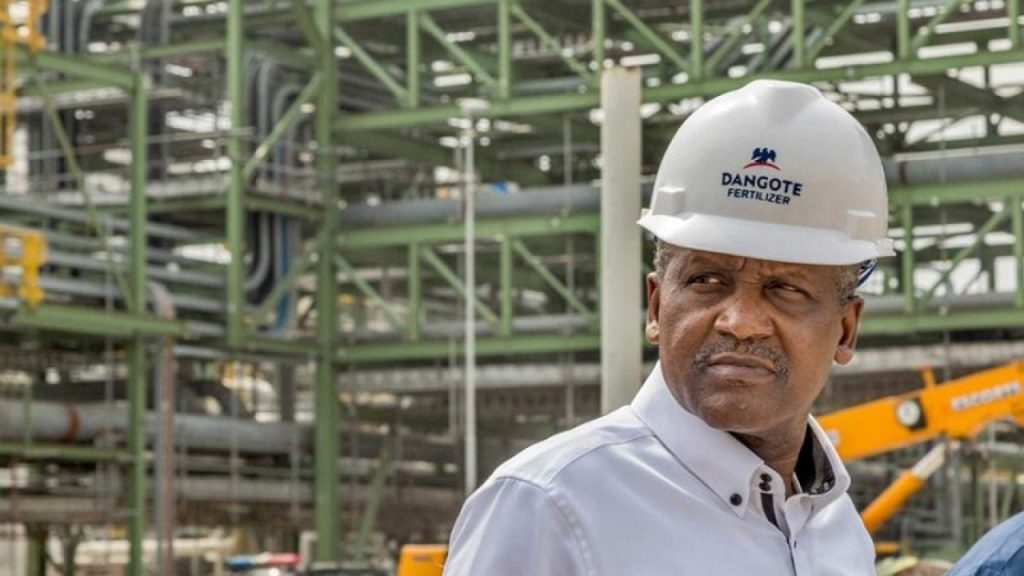The Dangote Petroleum Refinery, a monumental $20 billion project and the largest single-train refinery in the world, is significantly expanding its crude oil storage capacity amidst concerns about the reliability of local crude supplies. The refinery is adding eight new tanks, boosting its storage capacity by a substantial 6.29 million barrels, or one billion liters. This represents a 41.67% increase, bringing the total crude storage to 3.4 billion liters. The decision to augment storage stems from what refinery officials describe as inadequate crude supply from the Nigerian National Petroleum Company Limited (NNPC), forcing the refinery to increasingly rely on imported crude. This reliance necessitates larger stockpiles to ensure continuous operation and mitigate potential supply disruptions.
The refinery’s current storage infrastructure consists of 20 crude storage tanks, each with a capacity of 120 million liters, totaling 2.4 billion liters. In addition to the crude storage, the refinery boasts a refined product storage capacity of 2.34 billion liters, further highlighting its massive scale and ambition to transform Nigeria’s fuel landscape. Having commenced operations in January 2024 with the production of diesel and aviation fuel, and later petrol in September, the refinery has quickly established itself as a major player in the domestic market and has also initiated exports to several countries. The refinery’s move to bolster storage capacity underscores the logistical complexities of managing a refinery of this magnitude and the crucial role of ensuring a consistent flow of raw materials.
The refinery’s reliance on imported crude highlights a paradoxical situation for Nigeria, a nation historically known as Africa’s largest oil producer. Until the Dangote refinery came online, Nigeria was ironically a net importer of refined fuels. While the NNPC’s Warri and Port Harcourt refineries have recently resumed operations, adding to domestic refining capacity, the NNPC is faced with the challenge of supplying crude to all three refineries while simultaneously meeting its existing loan obligations. This complex dynamic necessitates careful allocation of crude resources and emphasizes the strategic importance of the Dangote refinery in meeting Nigeria’s fuel demands.
The issue of crude supply to the Dangote refinery has been a point of contention. Prior to an agreement reached in August 2024, which mandated the sale of crude to the refinery in naira, the facility had reportedly faced significant crude shortages. Aliko Dangote, President of the Dangote Group, even accused international oil companies of attempting to sabotage the refinery by withholding crude supplies. The naira-for-crude deal was seen as a solution to these supply challenges and a means to promote local currency usage. This initiative, beginning in October 2024, aimed to provide the Dangote refinery with approximately 385,000 barrels per day of crude oil in exchange for naira payments.
Despite the naira-for-crude agreement, the Dangote refinery’s decision to expand its import storage capacity raises questions about the long-term viability and effectiveness of the arrangement. While Aliko Dangote has touted the deal’s success in reducing fuel prices within Nigeria, the ongoing need for imported crude suggests that local supply may still be insufficient to meet the refinery’s full capacity. The expansion might indicate that the refinery anticipates a continued reliance on imported crude, possibly due to persistent challenges in local crude production or allocation. This move highlights the complex and evolving relationship between the Dangote refinery and the NNPC in the context of Nigeria’s oil industry.
Nigeria’s oil production has been plagued by persistent issues, including underinvestment, pipeline vandalism, and crude oil theft. These challenges have at times led to Nigeria losing its position as Africa’s top oil producer. Despite the Nigerian Upstream Petroleum Regulatory Commission reporting production figures nearing OPEC quota levels in late 2024, the Dangote refinery’s continued reliance on imported crude suggests that domestic production may still fall short of meeting the combined demand of local refineries and export commitments. The expansion of the refinery’s storage capacity underscores the need for a consistent and reliable supply of crude oil, whether from domestic sources or international markets, to ensure the refinery’s sustained operation and contribution to Nigeria’s fuel security.


